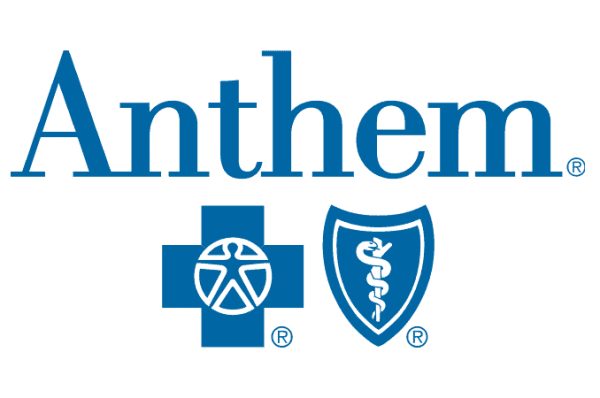COVID-19 brings new problems to impoverished
Joplin boasts a higher than average poverty rate of 17.7 percent according to Census.gov. The national average of 11.8 percent for the country overall paints a tragic picture for workers in the Joplin area.
COVID-19 has placed extra pressure on families in the Joplin community, as Duane Dreiling, Executive Director for United Way of Southeast Missouri said, “Before the pandemic, many of our families were living paycheck to paycheck. Now they are forced to make decisions on whether I pay my bills or feed my family. Those are hard decisions”.
The first case of COVID-19 in Joplin was announced on March 23, weeks after the first case was discovered in the state on March 7. Missouri’s governor issued a statewide stay at home order on April 3, as cases began to pile up across the state.
Thousands of employees had been either laid off or furloughed from their job, leaving Missouri residents in lower income brackets and poverty in many cases without an income.
Congress did, however, pass a 2 trillion dollar stimulus package offering adults under a certain income bracket a one-time payment of 1,200 dollars. Even a month after the bill was signed by President Trump, millions of Americans and many Missourians have yet to receive their stimulus payment.
Governor Parsons has also extended the stay at home order to May 3, leaving many workers uncertain if they have the necessary funds to make it through the entire shutdown.
“Poverty in our local area is likely a consequence of past economic development, and the degree to which Joplin’s investment in human capital has possibly been uneven over time,” said William Delehanty, a social science professor at Missouri Southern.
“The causes of poverty are many, but the most important causes tend to be structural – that existing rules and practices in American society tend to reproduce the existence of impoverished people, without necessarily providing them with resources and opportunities to change their life circumstances”.
Joplin has had its fair share of struggles over the years. In 2011, the Joplin tornado swept through the town, leaving nothing but tragedy in its wake. Evan after the rebuild, the tornado had a direct impact on those left living in poverty in Joplin.
“The 2011 tornado resulted in a significant loss of affordable housing stock,” said Duane Dreiling of the United Way. “Individuals and families could find a house or apartment for $400 or $500 a month, but now, with the rebuilding of that exists, rent is more likely to be $700 a month, but income among the population has not increased”.
With the bare necessities increasing in price, and wages stagnant and not increasing, families are finding it difficult to move out of their financial state.
The COVID-19 pandemic brings along with it uncertainty, and in many cases a loss of income. However, many of these problems such as unaffordable housing, low paying jobs and generational poverty have persisted in this area long before the virus came along. A question worth asking is, are we doing enough to help those who need it?
“Context plays a large role in how we judge the poor, we tend to take a person blame approach, we tend to blame the poor for their own plight,” said Ree Wells-Lewis, the chair of the social science department at Southern.
She continued, “If our poverty programs can reduce suffering, those in poverty can gain the strength to build themselves up”.
Poverty, however, negatively affects certain groups at a higher rate than others. The U.S. Census in 2018 reported that one out of every six children under the age of 18 fall under the poverty threshold. While in 2018 the U.S. Census also reported that women still live in poverty at higher rates than their male counterparts, at 13.6% for women and 10.6% for men.
Many aspects play a role in these outcomes, as Wells-Lewis said, “low wages, some caused by discrimination and the responsibility of raising children, all play a factor.”
In this country, it is very plausible to work a full-time job and not be able to meet your basic needs. But what happens when you try your best to get a good job and possibly make it past the threshold?
Dreiling explained the Cliff Effect and how it affects low income workers trying to make that leap out of poverty.
“People living in poverty are often held back from taking a job that pays a little more, because that increase may cause them to lose some assistance programs such as childcare.”
In other words, if you finally make that leap with a job that pays a little better, your cost benefit analysis may end up showing that you are losing money overall.
“If you get your basic needs met, improvement in your training, skills and your education can come next,” said Well-Lewis.
Basic needs such as healthcare, a wage that workers can live on and a future as a college graduate, are the basic needs many voters and workers in 2020 are crying out for.
During the 2020 election cycle, we saw candidates such as Bernie Sanders push for Medicare for All, Tulsi Gabbard push for a Living wage, and Andrew Yang a Universal basic income. With all these candidates now out, will the cry of their voting base ever be heard?
Despite those policies not in place in 2020, Dreiling gave information for those who will need assistance during this pandemic and beyond.
“Crosslines Ministries and Economic Security Corporation are great resources for food, housing and utility assistance. The Community Clinic provides healthcare for those that may have lost their health insurance. We encourage people to call 2-1-1 to find out what services are available in their area.”
Your donation will support the student journalists of Missouri Southern State University. Your contribution will allow us to purchase equipment and cover our annual website hosting costs.



















